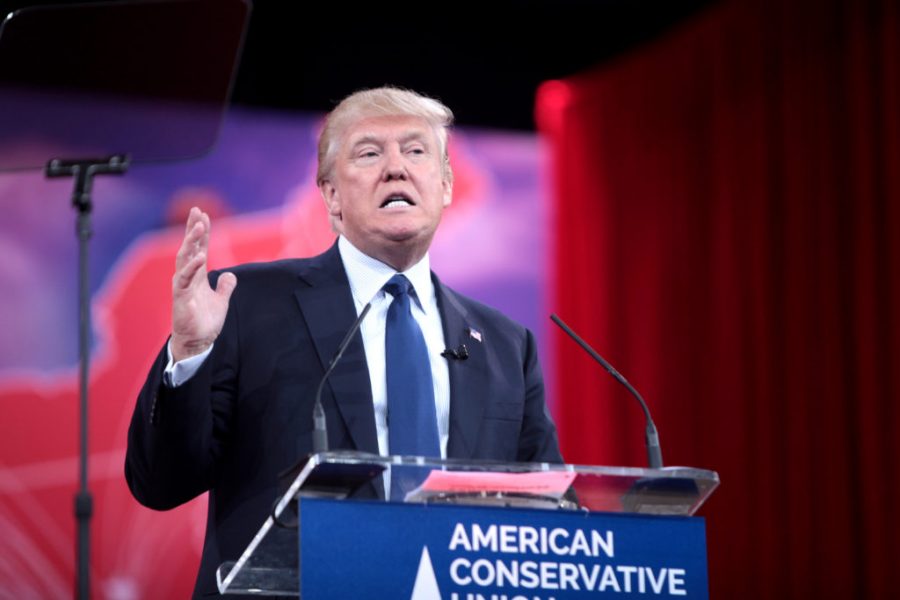Assessing the mental stability of mainstream figures is a tempting venture for psychiatrists thirsting for fame. Former presidential candidate Barry Goldwater was forced to address claims he was unfit for office; similarly, individuals, like Rachel Dolezal, have been psychoanalyzed from afar whenever media outlets direct their attention toward rousing stories. The modern analog is President Donald Trump, who was widely “diagnosed” throughout the primary and general elections. Capitalizing on the appeal of providing diagnoses for publications is detrimental to the psychiatric field and ought to be avoided.
History is an endless cycle that repeats itself. Imagine a man launches a presidential campaign and questions arise regarding his mental fitness. Fringe voters tired of the political elite support his anti-establishment message and the insurgency of his campaign is enough to divide the Republican party. His bestselling novel may have been written by someone else, but those details do not matter to his populist, rightwing supporters.
The year is 1964 — this man is Barry Goldwater.
Goldwater loses the election to Lyndon B. Johnson in an utter landslide. Throughout the race, he must defend himself from assaults on his character, including critics in a short-lived magazine named Fact. One month before the election, Fact ran a cover that stated “1,189 Psychiatrists say Goldwater is Psychologically Unfit to be President!” The magazine’s editors were later sued as the paper neglected to mention these psychiatrists were contacted through a questionnaire and responded by meagerly checking “no” for mental fitness.
The editors cited some psychiatrists wrote responses alongside their questionnaires, suggesting Goldwater was a megalomaniac, anxiety driven and grossly psychotic. Voters were dissuaded from electing a candidate accused of schizophrenia, especially given the cultural stigma surrounding mental health in the United States. Although Fact eventually lost, outrage spread that 1,189 psychiatrists who had neither met nor treated Barry Goldwater willingly determined his psychological well being.
Perhaps Goldwater was uniquely positioned to receive criticism. Indeed, American politics is infamous for its civilized brutality. Whether public speculation was appropriate is a matter unrelated to the question of psychiatric professionalism, which has created definitive guidelines. The American Psychiatric Association (APA) decided the method of long-distance diagnosis was particularly threatening for the reputation of the profession and its practitioners. Four years after the trial, the APA instated the “Goldwater Rule,” which is still within the organization’s ethical code of conduct.
Many in the modern era are tremendously unsatisfied with the Goldwater Rule, despite the apparent necessity for rigid guidelines in the psychiatric field. This logic is then applied to Trump, who has been accused of every imaginable narrative — none of which have actually manifested. Before approaching the precarious situation of Trump, let us first explore the implications of psychiatry’s “gag order.”
Dolezal once posed as a black woman in Spokane, Washington, where she served as the president of the National Association for the Advancement of Colored People (NAACP). After a local reporter drudged up a story of deceit regarding her white background, she was examined from all angles. Publications across the nation ran headlines extolling Dolezal’s mental ineptitude and instability, claiming she was ill and needed further psychiatric attention. Some of these stories were even fueled by psychiatrists bent on achieving stardom. Determining an individual’s mental health is no easy task, and the Goldwater Rule should have been upheld across the industry.
Similar situations have emerged within the past decade, including criticism of Charlie Sheen, Kanye West, Catherine Zeta-Jones, Mel Gibson and Britney Spears. Public speculation is perfectly admissible due in part to the First Amendment; however, when the integrity of a medical field is questioned, the individual members have a responsibility to keep the standards maintained. Commenting on the mental health of celebrities and icons from afar — without a live consultation and analysis of the individual’s background — undermines legitimacy at the expense of others.
@TheChrony


